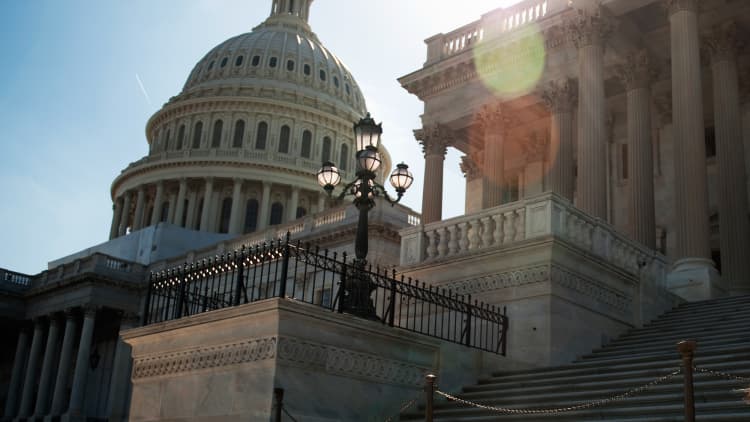In his annual letter to stakeholders, early Facebook executive and Social Capital founder Chamath Palihapitiya shared his vision of how the largest tech companies in the U.S. might be broken up and "crippled."
"If the regulator's efforts are successful, Big Tech will be broken up within the decade," Palihapitiya wrote.
So far, little regulation has been imposed on the tech industry at the federal level, but that could soon change. In Congress, lawmakers are weighing proposals to protect consumers' data privacy and limit a sweeping liability protection for online platforms. At the Federal Trade Commission and the Department of Justice, regulators are evaluating the competitive practices of Facebook, Apple, Amazon and Google.
Palihapitiya said breaking up those four and Microsoft will be the "first signal that the modern Gilded Age is ending." He argues that trust-busting "is the most realistic way of making capitalism work for everyone versus the few."
Here's what he says could be done.
Break up the companies into separate, smaller firms
- Breaking up companies like Google, Microsoft, Apple, Facebook and Amazon will be a sign of progress toward reducing vast wealth inequality in the U.S., according to Palihapitiya. He says it will also stimulate competition and stop "talent hoarding" so that tech workers will be more likely to build their own businesses or pursue jobs in the public interest.
- Palihapitiya says companies with third-party ad networks would have to divest those properties in order to "allow the 'demand' side of the internet economy to more effectively compete with the 'supply' side."
- Palihapitiya predicts that Apple's iPhone, Microsoft's cloud service Azure, Amazon Web Services, Amazon Retail, Google Search, YouTube, Gmail, Google Cloud, Facebook, WhatsApp and Instagram could all be separate companies prohibited from sharing data with one another.
- He suggests regulators could bring in "broad groups of disinterested experts" to help them understand how these businesses work and make sure the remedies are effective.
Impose taxes
- Palihapitiya says governments will impose greater taxes on Big Tech from revenues and profits generated "inside of their borders from their citizens." This could be similar to the digital tax being weighed in Europe.
- A growing sense of nationalism around the world increases the likelihood this will happen, according to Palihapitiya, and "exogenous events like the coronavirus pandemic will make stronger cases for more resilient national economies, less globalization and more restrictive borders and trade agreements."
- Finally, governments will change the market incentives for tech companies, targeting stock-based compensation in particular, according to Palihapitiya.
- Governments might impose high taxes on restricted stock unit compensation for large companies, for example, and alleviate tax burdens for employees who receive salaries or stock options from small companies.
Halt mergers and acquisitions
- Governments should also "prevent any further M&A from Big Tech including the deceptive practice of acqui-hiring," Palihapitiya wrote, referring to the common Silicon Valley practice of buying a company for its talent rather than its technology.
- "Essentially, by making the incremental engineer more costly for Big Tech while making that same engineer less expensive for startups, we can stimulate an entirely new wave of entrepreneurship we weren't expecting," he said.
WATCH: How US antitrust law works, and what it means for Big Tech



